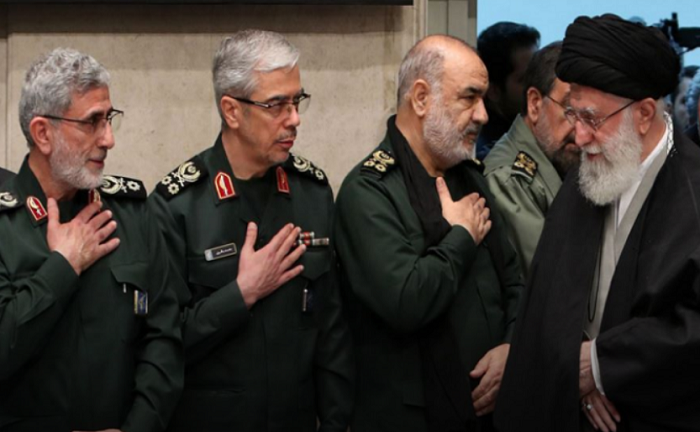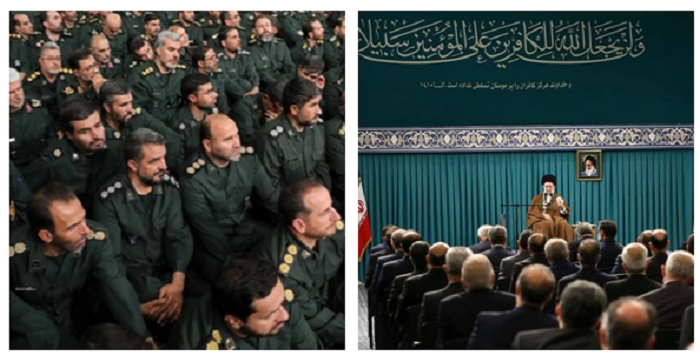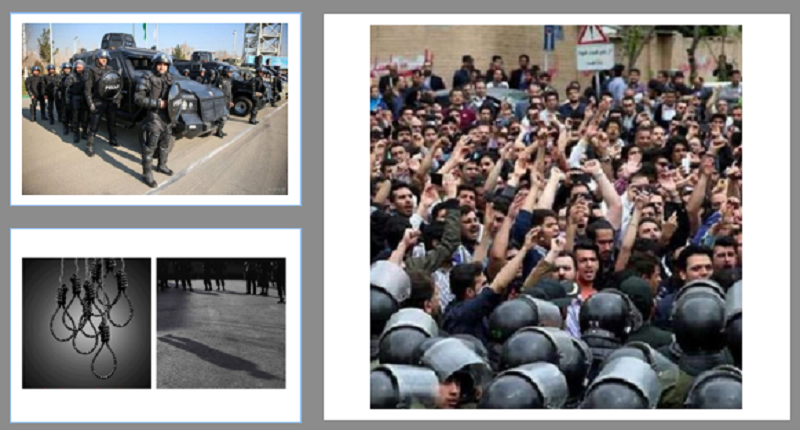
Over the past forty years, Iranians have become adept at decoding the dissonant rhetoric of the mullahs that rule them.
This deciphering skill has become an unwelcome necessity, as these often conflicting proclamations leave the public wary of the regime’s true intent. Be it economic forecasts or security threats, a disturbing pattern has emerged where the populace feels compelled to expect the opposite of official assertions.
Case in point, assurances on the stability of bread or fuel prices signal impending shortages. It’s no longer just about daily provisions; the intricacies extend to the regime’s militia groups and security forces, particularly the Revolutionary Guards (IRGC) and the Basij.
The regime’s long-standing propaganda machine, he conceded, had failed. For decades, they’d tried to obscure ‘revolutionary truths’ from the Iranian populace. These truths, which elucidate the root causes of societal distress, have now culminated in a popular consensus favoring regime change.

On August 16, after an extended hiatus, the Supreme Leader of Iran, Ali Khamenei, met the top brass of the IRGC. Ostensibly about boosting morale, Khamenei’s message dwelt on a more profound admission.
In his address, Khamenei spotlighted perceived external threats to the IRGC, claiming, “One of the enemy’s foremost tactics is to distort the image of the IRGC and undermine the reputation of the Basij.” While proudly asserting the IRGC’s role in international anti-terror operations, he also acknowledged its tainted global reputation. Undeterred, he rallied his commanders, urging resilience and grit.
But as the 2022 uprising anniversary looms, it’s clear that this meeting was more about reassurance than rejuvenation. Khamenei is deeply attuned to the demoralization within the IRGC, where many commanders have defected to the opposition. The most glaring evidence came last December when Hamid Abazari, an IRGC advisor, exposed the disillusionment festering within the IRGC’s rank and file. This disillusionment isn’t confined to the upper echelons; it’s a widespread sentiment.

The youth-led uprisings continue to defy the once-formidable IRGC and Basij, making their efforts to instill fear largely futile. With each passing day, resistance activities against these entities are intensifying.
As the spokesperson for the People’s Mojahedin of Iran (PMOI/MEK) astutely noted, Khamenei’s recent declarations can be seen as a direct counter to the growing contempt that Iranians feel for the IRGC and Basij. While Khamenei lauds the IRGC as the world’s leading anti-terror force, public sentiment equates them to terror groups. Chants like “Sepahi, Basiji, ISIS – you’re all the same!” have become commonplace.
Khamenei’s desperate rallying cry underscores a broader issue: the regime’s growing isolation from its own people.

MEK Iran (follow us on Twitter and Facebook), Maryam Rajavi’s on her site, Twitter & Facebook, NCRI (Twitter & Facebook), and People’s Mojahedin Organization of Iran – MEK IRAN – YouTu
